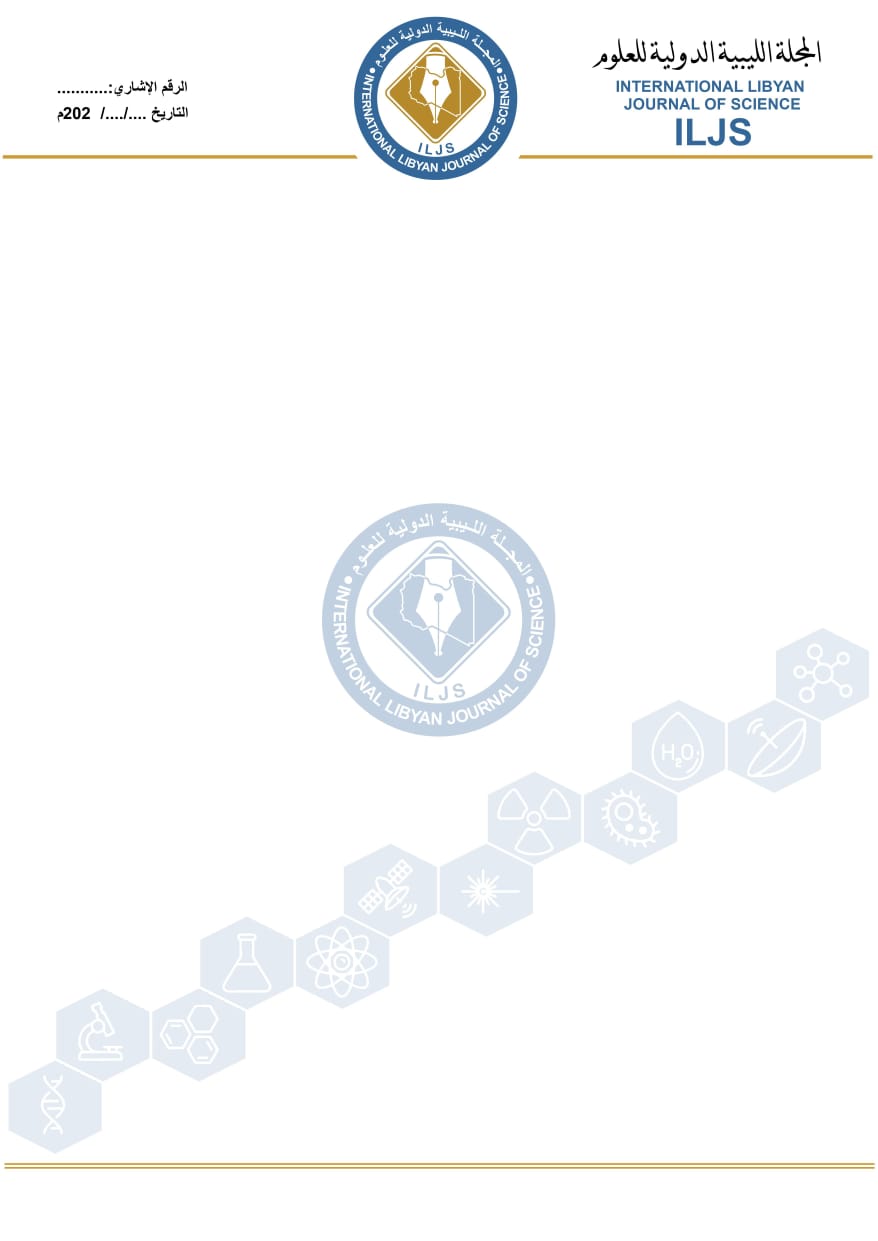
Peer review policy
The International Libyan Journal of Science (ILJS) is dedicated to maintaining the highest standards of academic excellence and integrity. The peer review process is a cornerstone of our commitment to quality, ensuring that all published research is rigorously evaluated for its scientific merit, originality, and relevance. Our peer review policy outlines the procedures and ethical guidelines that govern this critical aspect of our journal.
- Types of Peer Review
ILJS employs a double-blind peer review process, ensuring that both the reviewers and the authors remain anonymous throughout the review. This approach helps to eliminate biases and promotes an objective evaluation of the manuscript.
- Peer Review Process
- Initial Submission and Screening: Upon submission, manuscripts are screened by the editorial office for adherence to the journal’s guidelines and overall suitability. Manuscripts that pass this initial screening are then assigned to an editor.
- Assignment to Reviewers: The editor selects two or more independent reviewers with expertise in the relevant field. Reviewers are chosen based on their knowledge, experience, and lack of conflicts of interest.
- Reviewer Evaluation: Reviewers assess the manuscript for originality, methodology, significance, and clarity. They provide detailed comments and recommendations regarding the acceptance, revision, or rejection of the manuscript.
- Decision Making: Based on the reviewers' feedback, the editor makes an initial decision. The possible outcomes are:
- Acceptance: The manuscript is accepted with minor or no revisions.
- Revisions Required: The manuscript requires major or minor revisions. Authors are provided with the reviewers' comments and asked to resubmit the revised manuscript.
- Rejection: The manuscript is rejected due to significant flaws or lack of originality.
- Final Decision: After revisions, the revised manuscript may undergo further review or be accepted directly by the editor. The final decision is communicated to the authors.
- Responsibilities of Reviewers
- Confidentiality: Reviewers must treat all manuscripts as confidential documents and must not disclose any information about the manuscripts to anyone outside the review process.
- Objectivity and Fairness: Reviews should be conducted objectively, with clear, constructive feedback. Personal criticism of the author is inappropriate.
- Timeliness: Reviewers are expected to complete their reviews within the agreed timeframe. If more time is needed, they should promptly inform the editor.
- Conflict of Interest: Reviewers should not review manuscripts in which they have conflicts of interest resulting from competitive, collaborative, or other relationships with any of the authors, companies, or institutions connected to the papers.
- Responsibilities of Authors
- Responding to Reviews: Authors should respond to reviewers' comments in a constructive and timely manner, addressing all points raised. Revised manuscripts should include a detailed response letter explaining how each comment was addressed.
- Acknowledgment of Sources: Authors must properly acknowledge all sources of data, ideas, and methodologies used in their research. Plagiarism or self-plagiarism is strictly prohibited.
- Ethical Considerations
- Integrity: Both authors and reviewers are expected to uphold the highest standards of academic integrity. Any ethical concerns raised during the review process will be investigated thoroughly.
- Misconduct: Any allegations of misconduct, such as data fabrication, falsification, or plagiarism, will be taken seriously and addressed according to COPE guidelines.
- Appeals and Complaints
Authors have the right to appeal editorial decisions. Appeals must be submitted in writing to the editorial office, providing a detailed explanation and any supporting evidence. The ILJS editorial board will review the appeal and make a final decision.
Conclusion
The International Libyan Journal of Science is committed to a fair, transparent, and rigorous peer review process. By adhering to these guidelines, we aim to ensure the publication of high-quality research that advances scientific knowledge and maintains the trust of the academic community.
